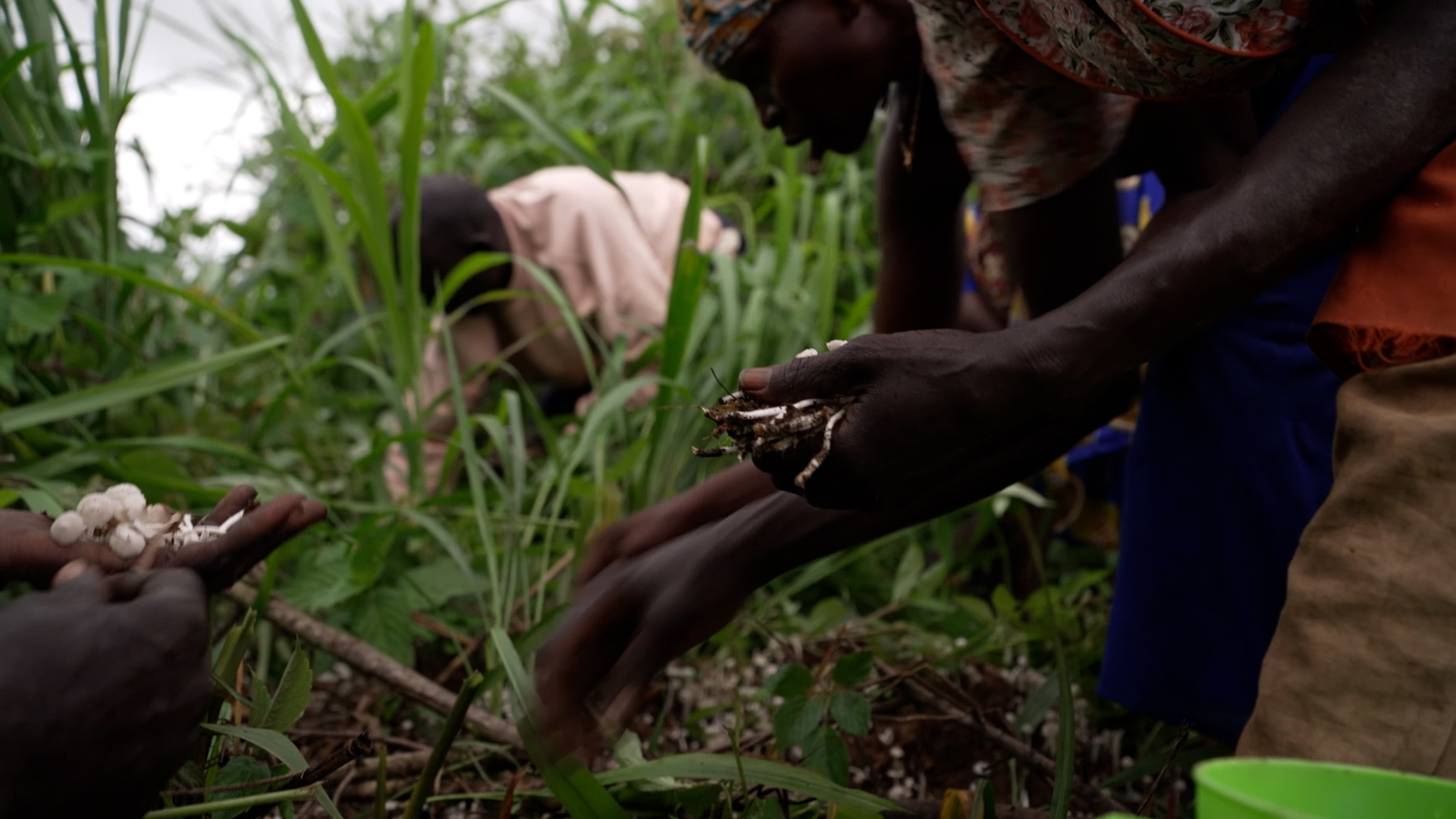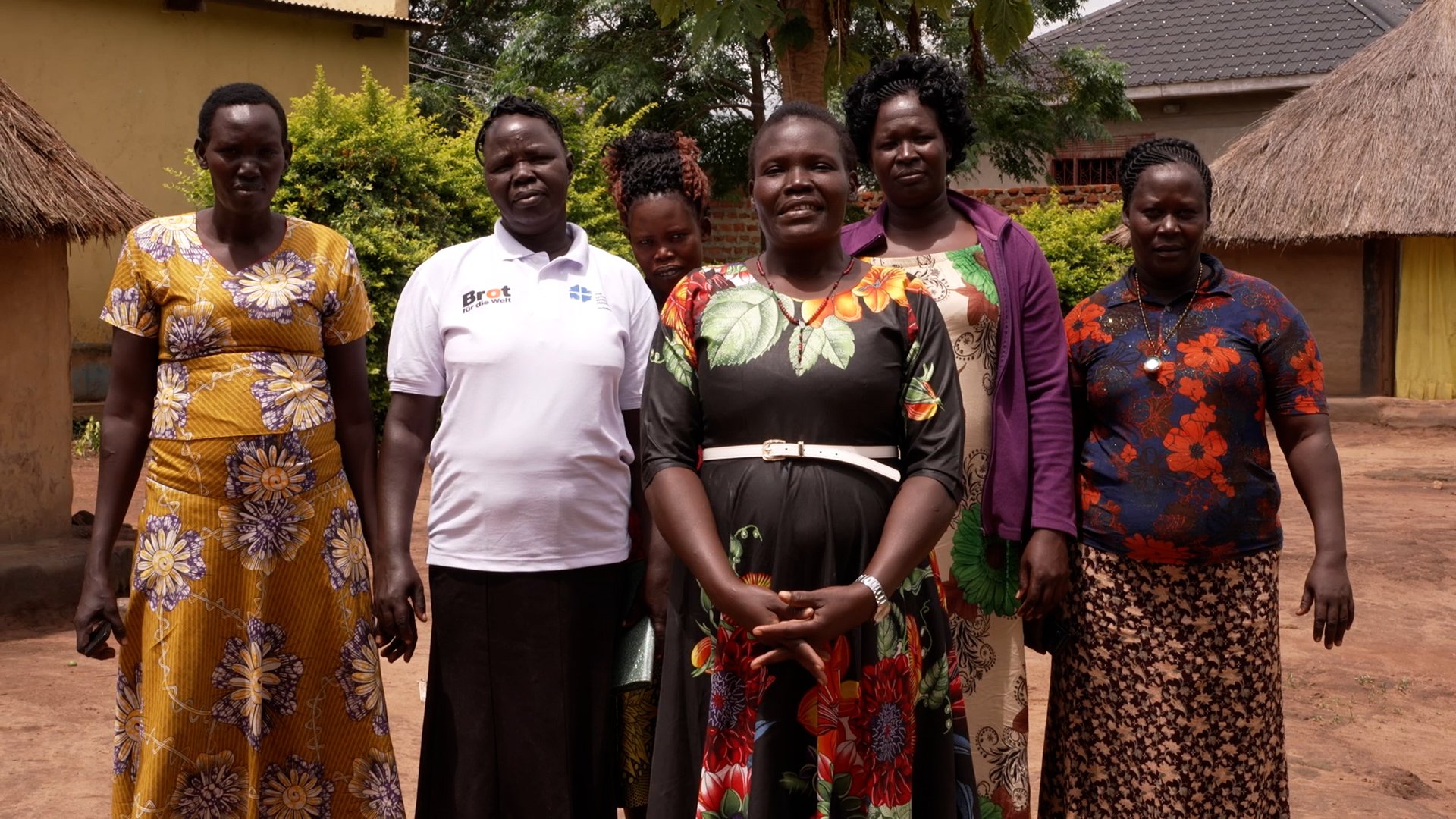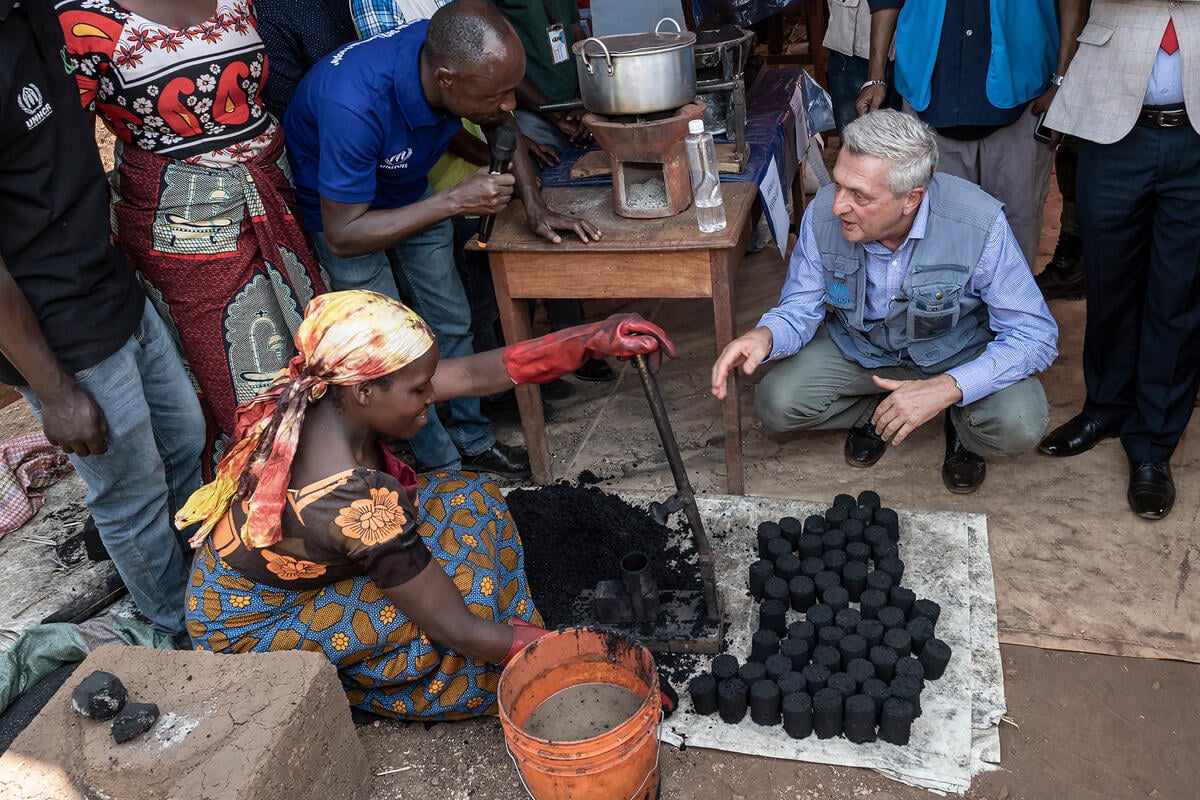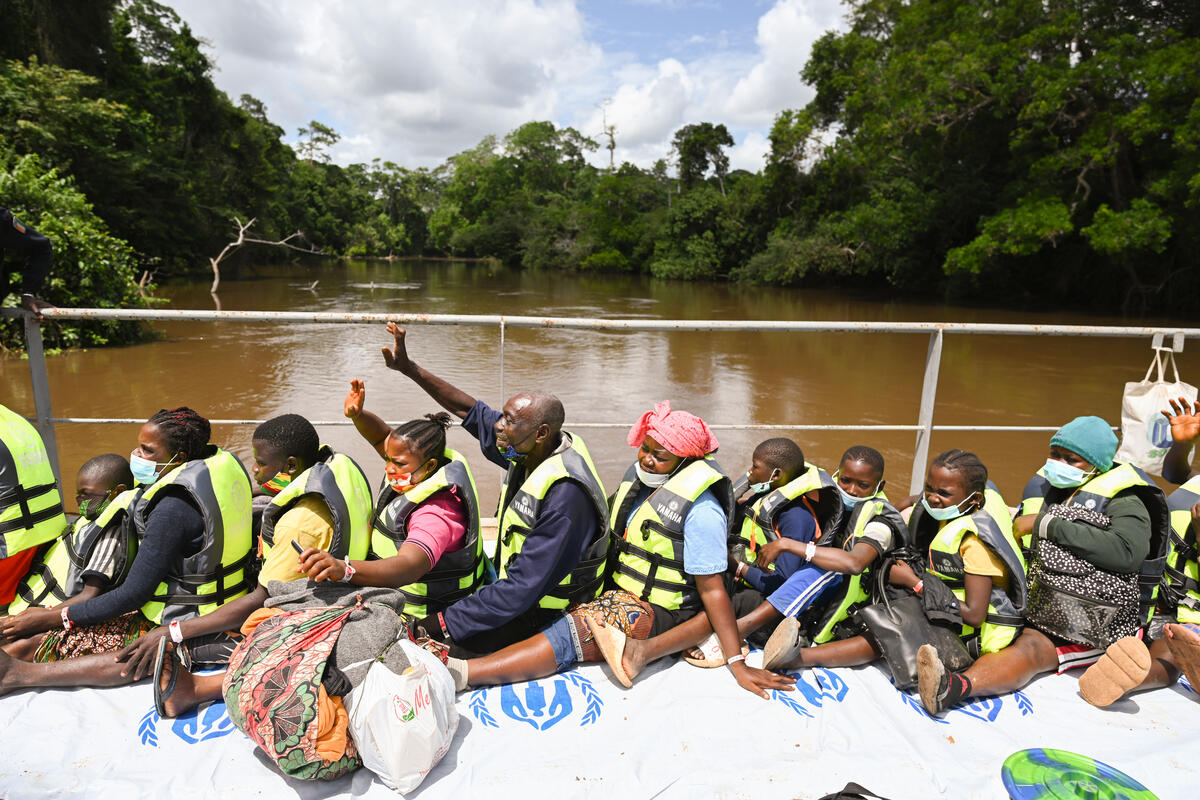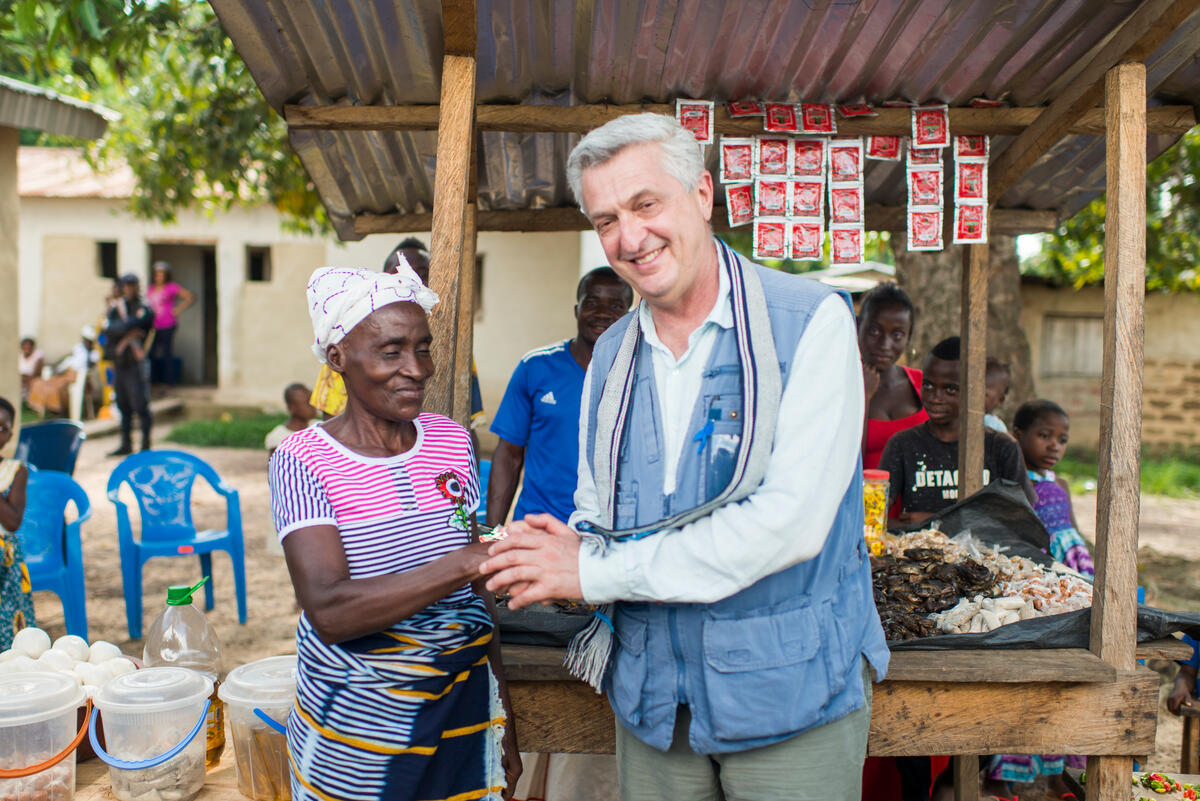Ivorian returns resume from Liberia after Ebola outbreak
Ivorian returns resume from Liberia after Ebola outbreak

PROLLO, Côte d'Ivoire, Dec 18 (UNHCR) - The UN Refugee Agency has resumed the voluntary repatriation of tens of thousands of Ivorian refugees from Liberia, after a pause of more than a year because land borders were closed to prevent the spread of a deadly Ebola outbreak.
Some 11,000 of the 38,000 Ivorian refugees in Liberian camps have said they wish to return immediately. A convoy, carrying 244 people, set off on Friday from the coastal town of Harper, in eastern Liberia, for nearby Tabou, in south-western Côte d'Ivoire, taking a ferry to cross the river border at Prollo.
A second convoy, carrying 401 people, left PTP camp in Grand Gedeh County for Toulepleu in western Côte d'Ivoire. Toulepleu is also located close to the border, about 300 kilometres to the north of Tabou.
"This is a very important and encouraging day that will allow the refugees on these convoys to finally return and help rebuild their country and resume normal lives in their own homes after several years in exile," said Ndeye Ndour, UNHCR Representative to Liberia. She thanked the governments of both countries for enabling the return convoys to resume.
Among those who clambered on to trucks for the return journey was Ivorian father Brégui, who shed a few tears as his friends and neighbours waved and sang their goodbyes. “We will miss our life here. My children will miss their friends, but as hard departing is, we have to go home,” he said. “Today is the day we have all been waiting for.”
Two more convoys are planned before the end of the year, bringing the expected number of returnees by end-2015 to more than 1,000 people. The convoys will pass along special humanitarian corridors because the borders are still closed. The returns will continue in January, with road repairs planned to improve access.
On arrival in Tabou and Toulepleu, the returnees will spend a day in transit centres, where they will get a hot meal and undergo medical screening, including for Ebola. An awareness campaign aimed at reducing the risk of Ebola-related discrimination and stigmatization will be conducted in the communities where they will be returning.
Before they are taken back to their towns or villages, the returnees will be given kitchen utensils, mattresses, mosquito nets and other basic aid items by UNHCR to help them rebuild their lives as well as WFP food rations for three months.
UNHCR will help the returnees reintegrate in their homeland, with income-generation programmes, training and start-up aid. The Côte d'Ivoire government has put in place a number of programmes to help the returnees regain access to their lands and for children to get access to education.
Some 300,000 people fled the violence that followed presidential elections in November 2010 in Côte d'Ivoire, including more than 200,000 who sought shelter to neighbouring Liberia. The crisis ended in April 2011 following a political settlement that confirmed Alassane Ouattara as president.
The voluntary repatriation of Ivorian refugees started in late 2012. While UNHCR facilitated the return of some 40,000 refugees from Liberia, an additional 160,000 are believed to have returned on their own.
The outbreak of Ebola in West Africa last year caused the closure of the land border between Côte d'Ivoire and neighbouring Liberia and Guinea, forcing UNHCR and its partners to suspend the repatriation operation in July 2014.
No Ivorian refugee in Liberia has contracted Ebola and robust prevention measures have been implemented in the camps since the outbreak began in March 2014.
Côte d'Ivoire has been largely peaceful since April 2011, but sporadic and localized attacks have taken place in the south-west. Security in the area has been reinforced, with additional measures put in place to ensure safe passage for the convoys. Côte d'Ivoire's government has concentrated on building the economy and development.
By Diana Diaz in Prollo



